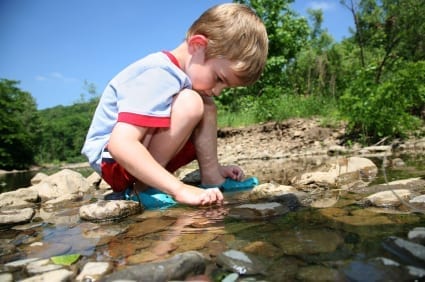As a parent, are you concerned about the way the school system approaches education? Do you believe classroom learning is inefficient? Some parents have become so disillusioned with the current system of schooling that they have taken a polar-opposite approach to education called “Unschooling.”
Grade school teacher John Holt coined the term unschooling in 1977 to define a way of learning more expansive than homeschooling. Unschooling is a child-led, organic process that doesn’t confine children to a school or a home, but allows them the freedom to learn in the world. According to unschooling.com, a website that advocates for the idea and use of unschooling, unschoolers are concerned with learning or becoming educated, not with ‘doing school.’ Unschooling has been around for decades, but in recent years, the concept has become even more popular.
Estimates of children homeschooled in the United States range from 1.5 to 2 million, according to the Associated Press’ Leanne Italie. Up to one third of those students could be considered unschoolers. In unschooling, parents are simply facilitators who encourage their children to learn about their interests and provide materials, instead of being teachers. There is no set curriculum or textbooks.
No Curriculum?
Advocates of unschooling maintain that children and teens engage in meaningful, real learning when they aren’t forced to stay within the confines of a rigid system. “We do the things that have meaning in our lives and contained within those activities is real learning,” unschooling.com says. Parents are encouraged to help their children develop interests and facilitate learning. Reading, building, coloring, dancing, writing and exploring are all appropriate unschooling activities. Children can visit museums, explore forests or visit tide pools as a form of learning. They aren’t trained to study “just for a test,” and they don’t learn to become stressed or anxious about learning. In addition, children are not forced to study subjects that bore them. According to unschoolers, when students are interested in what they are learning, they are more successful.
However, simply because parents are committed to allowing their children to learn as a part of ‘natural living,’ does not mean formal education is off-limits. In an interview with the Associated Press, 14-year-old Zoe Bentley shares that she has discovered a passion for Exogeology, the study of rocks on other planets. She has taken it upon herself to enroll in courses at her local community college to expand her knowledge of the subject.
While unschooling may seem far-fetched to some, it is a legal form of education in the United States. Unschoolers must abide by the rules of homeschooling within their home state. Each state has varying degrees of regulation- Some states require formal testing to assess the unschooler, while some simply require a letter from the guardian explaining what the child has been learning.
Concerns
Many are concerned that unschooled children and teens will not learn the skills needed for a successful adult life. For example, will a child be properly socialized in unschooling? He won’t be in a classroom or school surrounded by students his own age. In addition, there is a fear that a child will be completely unmotivated to learn or explore. And then, even if the child is motivated, the parents could lack the skills needed to facilitate learning.
Unschooling is a controversial topic, and we’re very interested to hear your thoughts on this up-and-coming way of education. Do you think unschooling is a smart, productive system or is it detrimental to a child’s life?
Tell us what you think in the comments below!





